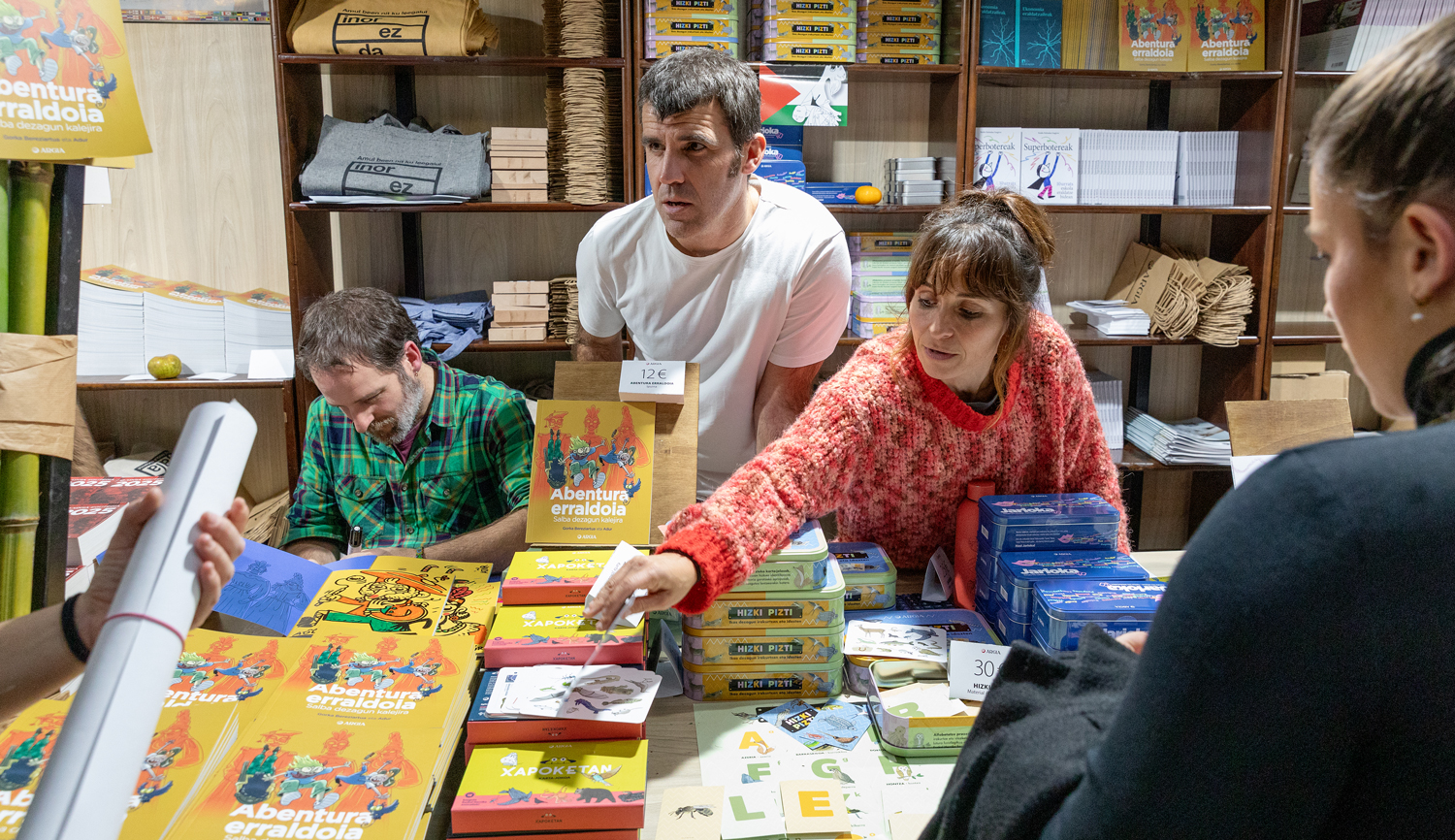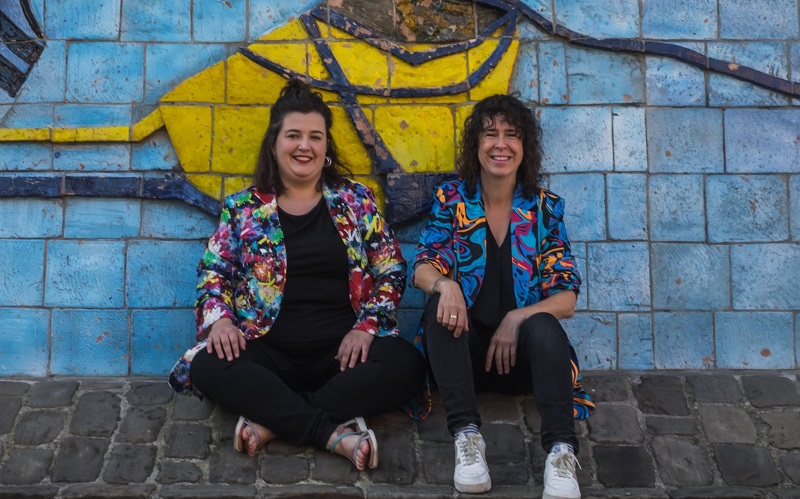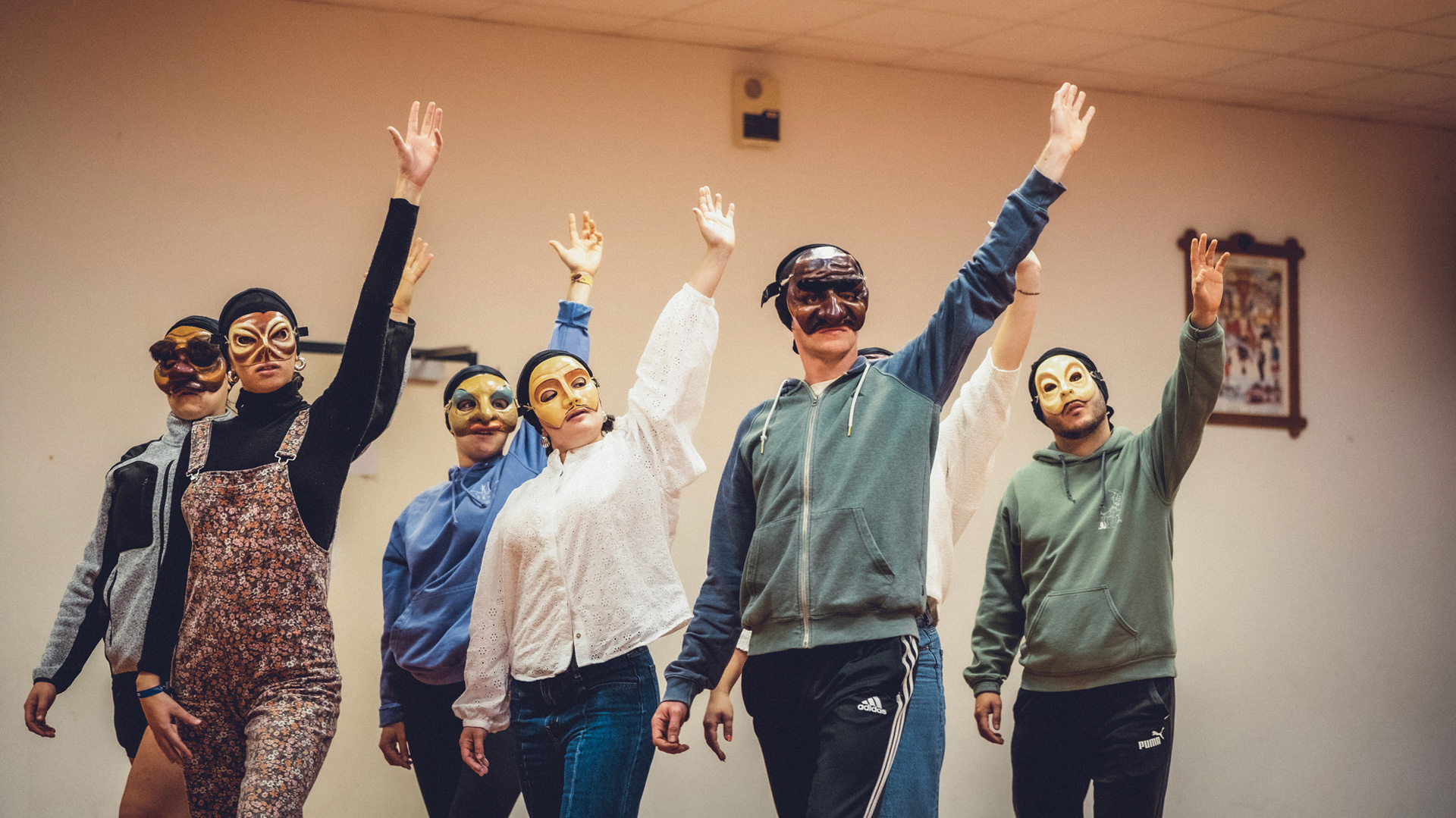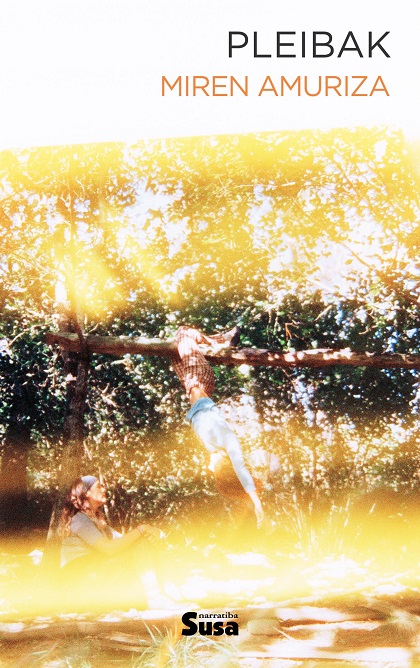Although not everything fits, memory
- If you're told the reference was Beyoncé, how would you stay? Believe me, it's not a joke. At the time of digitalization, Beyoncé's latest work is designed to listen to it as a album, and Katakrak wants to capture it in the double LP, which have created songs from his books. The space is ten years old, but they have not linked the project to this juncture, although it has also been an exercise of memory: “What do we remember about what has happened and what do we want to give importance to?”
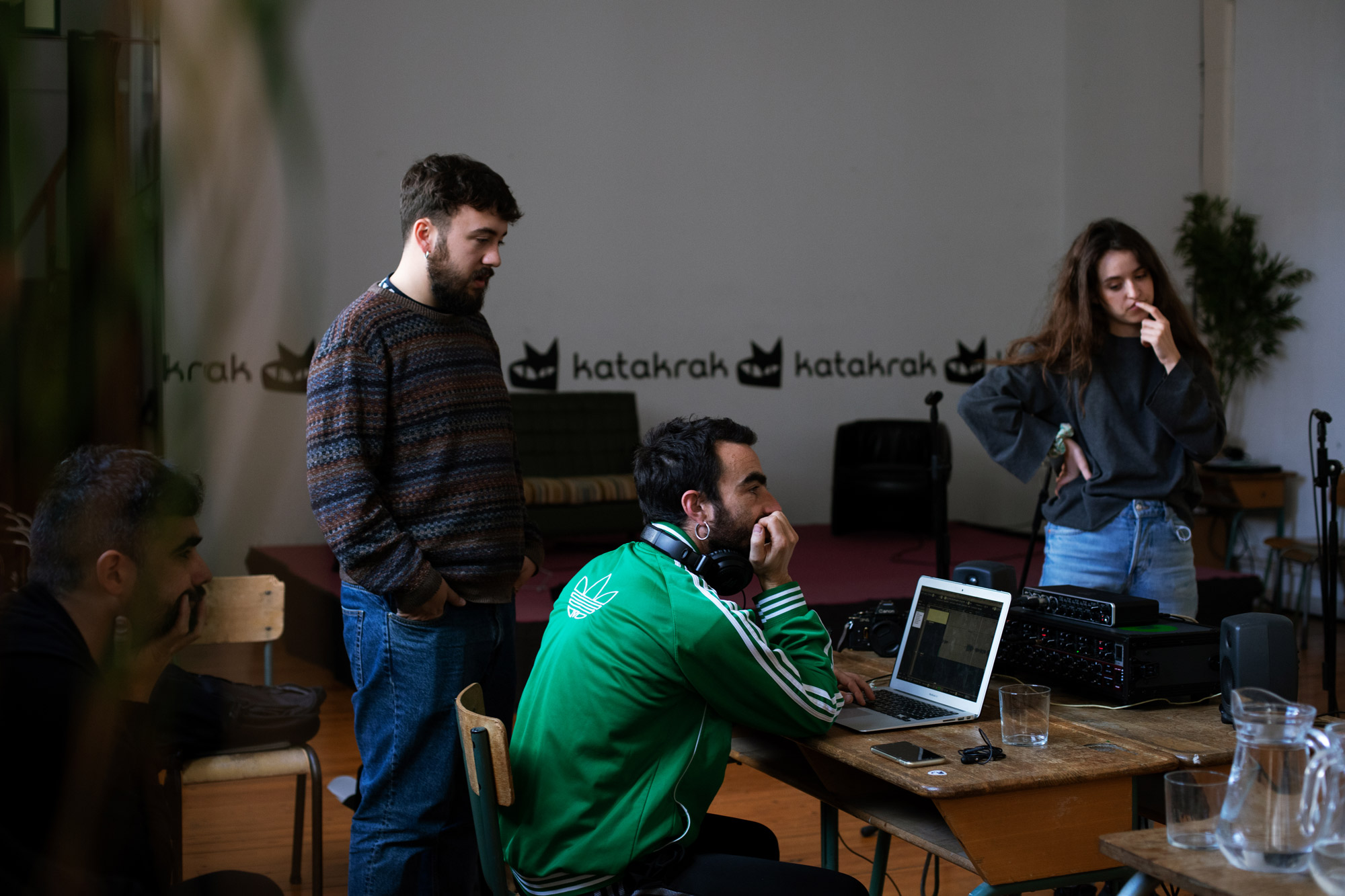
A few hours from 10 a.m., a November bald Tuesday in Pamplona, people are harassed in the cold stone banks opposite Katakrak. Wait. The shutter is still down, you see the light inside and the wait is a good excuse to look at the window: Rote Zora, Nahia Alkorta's book on obstetric violence, the Housing Issue of Engels always comes to the time, the books on Palestine have taken the first line... The motto on the awning line is to take a step backwards so that the worker inside does not think that we are putting the pressure of opening the accommodation, three meters or looking up: We'd like to change all of this. It is precisely the same motto found in the upper room, where the express study has been mounted, as you can see in hundreds of photographs of the recordings. The awning is not new, it has been since its foundation ten years ago. The double disc project receives almost the same name: All this. More than one will think of how original the friends of the Catacra are, or who have some hidden interest with the Hertzainak group.
The accommodation has been completed by the time you notice. It didn't need much. And it's Tuesday. Of course, then he realizes that offering such tasty coffee and such a nice cake has to do with all this. That's it. With the second breakfast comes Hedoi Etxarte from the bar to the table, followed by Ion Celestino, jacket in one hand and vinyl box in the other. This ambitious project, reflected in two four-sided vinyls and a 25-page notebook, has led us to unite. Before entering into the questions of the report tertulia, Celestino looks at Etxarte and asks “is this definitive?” pointing to the vinyl box. “Yes, it’s the last.” It detects a bug. They both make a boredom for a second, worsen their head and make a bad smile. “Let’s look no further,” they agree. Without errors there is no product, the one that works knows it well...

The project is called all of this, but it gives the feeling that all of this could be more. What is this? What is it? Passion for changing everything. Note the lyrics of J Martina's song: Honey, our people don't know peace. What happens? Everyone who doesn't have anything wants to. It's no coincidence. Celestino: “We don’t want a piece of cake, but a bakery. That’s the idea we’ve been spinning around.” Etxarte follows the thread: “The concept of totality, and what relationship we have with it, what is everything... Moreover, in Basque, everything is, and everything, at the same time, is.”
We've already commented that the first chorus you see when you get to the Catakrakera is the one on the awning, but then on some sign on the host bar you can find a phrase that I would like to drink all of this, and on top, at the end of the room, is the same motto of the awning. At the end of the reel of an analogue camera, the shield of the wall was shown, hence the project name. Without thinking too much, it seems: “It’s something we have, that we lean when we think little, but it’s not a corporate slogan.”

The interline of the
books, to the song Thirce canciones and dos himnos de Katakrak, one in Basque and another in Spanish. Celestino has stressed that the things that have emerged after several days of artists spinning from the room have been very special, “which would not happen otherwise”. He has been in charge of recording and managing it. Aesthetically, there are songs of great diversity. “I hardly imagine that Trigger, Maite [Arroitajauregi, Mursego], Beñat [Rodrigo, Kiliki Frexko] and the four are working together on the same song, if not for a ‘major project’ of one of them. However, as the Katakrak project was a great refuge, there was a sense of distension of this kind. The crossings that have occurred have been very special, as part of the day-to-day of those days. Zero tax, very free.”
In other words, they have stressed that many participants have acted outside their usual districts, there has been a displacement. In fact, some musicians have participated in four or five songs, and they believe that this would not happen if they did not act freely at the time of their creation and improvisation.

Etxarte: “[Joseba] Tapia, for example, ended the whole day of her recording, but Tapia is one of the most outstanding: besides being in her song, she is in Pirritx eta Porrotxena and in the two versions of the hymn. And like Areta [Senosiain], in all of them it is present and in that of Ibil Bedia, sometimes playing violin and others making voice. For example, Amaia Espinosa: Located in the choirs of the songs of Fermin Muguruza, in the choirs of the songs of the Quinbombo and playing the table, here, in our logistics, has participated almost every day, being with people, eating, etc. I think it's the way we learned in Barañáin's ship, that is, recording is also a meal at a time, or a colloquium."
Celestino feels identified with this sense of auzolan, because he understands music. “After recording a few crowns, going for coffee and helping to disconnect the music team, each one seems a lot from it.” The atmosphere is noticeable in view of the photographs, because at all times there have been people in the recordings, public, in some cases children, dogs and chess. “This is not someone who creates a job at home, individually,” Etxarte said about how to do the project. “It is that many people think, decide, act outside their scope.” Anyone who has felt the legitimacy to take pictures, for example, has taken them and taken them in the book. These pages also explain the relationship between artists and Katakrak.
Every singing assignment has had its own challenges. According to each artist or group, in some cases, because the agenda accounts did not give, or according to their wishes, several options have been selected. In the case of Chill Mafia, they say “for life” and they say their singing has been very gentle. An example of this is the exception made with them: “They were awarded the book, Michael Kohlhaas of Heinrich von Kleist, and they did not want to read it because they said they would not. So, I read [Celestino], we stayed for a few beers and told them what the book is about. They wrote about it. We have included an audio that tells it a little bit.”

The book was assigned for several reasons, because what is said in it is related to the style of the Chil Mafia. But what this song has at its base goes beyond content; the essence is the story of singing. The song is built on the recording of a pan at the time of recording. The guy is not of any kind: It's an audio recorded by Itziar Navarro in a musicology studio at a university in Sardinia. Celestino made a melody, “and everything else was recorded here.” The recording began at noon, lasted until night, and a fairly common process for those of the Chil Mafia was, according to Celestino, to sing from scratch in a place with a lot of improvisation. “But out of the ordinary, that was a challenge.”

At the end of the year, Katakrak will be ten years old and will write an ephemeris. Now that we live in the midst of the battle of memory, Etxarte says “we will decide what and how we want to remember it.” One example is to bring in what happened, what was told in the books and what happened in Katakrak in the ten years, in other ways. An exercise in memory of what has happened in ten years, in short, to the extent of what is wanted and what is possible.
Origin of songs
Thirteen books, thirteen songs. Perhaps the most remarkable feature of the project is that the songs have been based on books that Katakre has published over these years, and that the artists are of one end and the other, of different styles, but always related to space. In addition, the Katakraki hymn has been created: with melodies of two foreign songs, one in Basque and one in Spanish.
IbilBedi, Raimundo el Canastero and J Martina have brought their songs to the stage before publishing them. The songs are respectively: Anélids – Letters from the Rosa Luxembourg Prison on the book Sophie Liebknechti –, Madero – Maderos, Chusma and Mark Neocleous’s social order – and what should I do now? “We want the whole Dena of Nanni Balestrini.”
Together with Ibil Bedi, the first song we see in the light was Los Chikos del Corn: 1520 Song Sedwick Avenue, Dave Randallen Sound System. The political power of music.
To change style and provoke a cracker, there come Pirritx, Porrotx eta Marimotots, with a children's crown, who are we enemies? sing aloud – they have chosen Lidia Txukovskaya’s book Haur hitch. And then Joseba Tapia, accompanied by several musicians, Manuel Tiago's book "Five days, five nights."
The Mafia Chill, along with Mursego and Trigger, has recorded the song Michael Kohlhass, while Fermin Muguruza, with the help of other musicians and reading the essay book Women, culture, politics of Angela Davis, has recorded the song on the front line of the Artea front. And finally, for fans of electronic music, including DJ Reimy and Nakar.
Benito Lertxundi 60 urte iraun duen kantugintza uzten zuela jakinarazi du Durangoko azoka aitzin. 2023an Gernikan grabatu zuen kontzertu baten diskoarekin bururatuko du bere ibilbide handia bezain aberatsa. Bazuen urtea hartua zuela erabakia, ez da erraza izan horren berri... [+]
Hatortxu Rock jaialdiko 29. edizioa egingo da larunbatean Atarrabian. Sarrerak jada agortuta daude, baina txandak osatzeko laguntza behar da oraindik.
I don't want people who don't know how to share the umbrella. I don't love the people who walk too fast when it's not me, nor the ones who walk too slowly (well, that's a little, but only a little). I don't like people sitting in the hallway seat on the bus. I don't like reckless... [+]
By:
Mirari Martiarena and Idoia Torrealdai.
When: 6 December.
Where: In the San Agustín cultural center of Durango.
------------------------------------------------------
The fourth wall breaks and interferes directly, standing and fearless. ZtandaP is a way of counting... [+]
Xabier Badiola
Gaztelupeko Hotsak, 2023
-------------------------------------------------
Let's see. “Current music” is called music to anything that has a box of electronic rhythms, and, of course, you can’t. In these lines we have tried to show that the labels and... [+]
PLEIBAK
Miren Amuriza Plaza
Susa, 2024
--------------------------------------------------
Susa has published Miren Amuriza's second novel in the atrium of the Durango Fair: Plead. It's plebiscites because you're singing about an earlier recording. Berria includes the... [+]

















